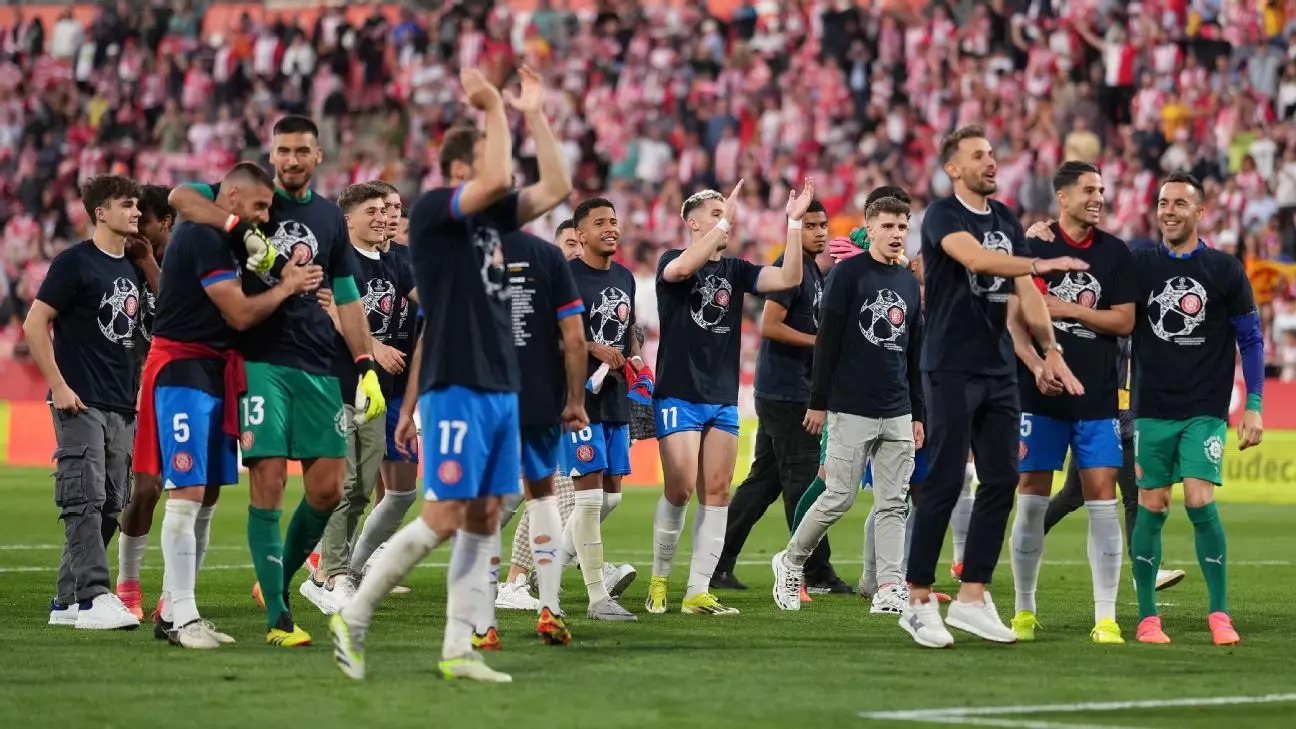The recent success of Girona in securing a top-four finish in LaLiga and Manchester City’s triumphant Champions League title win in 2023 have raised concerns over the integrity of the two clubs. Both clubs have strong ties to the City Football Group (CFG), an operation created by Abu Dhabi investors with stakes in 13 clubs worldwide. UEFA has identified the potential conflict of interest that comes with owning multiple clubs and has given CFG two options to ensure compliance with their rules on multi-club ownership.
The Compliance Deadline and Consequences
According to a UEFA document seen by The Associated Press, CFG has until June 3 to address the ownership issue. Failure to comply with UEFA’s rules could result in one of the teams, likely Girona, being demoted to the Europa League. The team that finishes higher in their domestic league will be given priority in the Champions League. This deadline has put pressure on CFG to find a solution that satisfies UEFA’s requirements and allows both clubs to participate in the elite European competition next season.
CFG has been presented with two options by UEFA to resolve the multi-club ownership dilemma. The first solution involves selling shares to an independent third party, reducing one ownership stake to below 30%. The second option is to transfer all shares in one club to a blind trust overseen by a panel appointed by UEFA. This model has been successfully implemented in the past for clubs like AC Milan and Toulouse. These divestment options aim to prevent collusion between clubs and ensure fair competition in European football.
Girona’s impressive season in LaLiga, with key players like Sávio making significant contributions, has raised their profile in European football. Similarly, Manchester City’s dominance in the English Premier League and their recent Champions League triumph have established them as a powerhouse in the sport. However, the close relationship between the clubs within CFG has put their participation in European competitions at risk. Both clubs must navigate the divestment process carefully to maintain their competitive edge while adhering to UEFA’s regulations.
The Growth of CFG and Multi-Club Ownership
The formation of CFG in 2013 marked a new era in football ownership, with Abu Dhabi investors expanding their influence across multiple continents. The rapid acquisition of clubs like New York City FC, Melbourne City, and Girona highlighted CFG’s global ambitions. However, this growth has also raised concerns about the potential risks of multi-club ownership. Critics argue that owning multiple clubs can lead to collusion in games and the transfer market, creating an unfair advantage for top-tier teams.
The Need for Transparency and Accountability
As the debate over multi-club ownership continues, it is essential for clubs like Manchester City and Girona to uphold the highest standards of integrity and compliance. Transparency in ownership structures and accountability in transfer dealings are crucial to maintaining the integrity of the sport. UEFA’s divestment options serve as a reminder of the importance of fair competition and ethical conduct in European football. It is now up to CFG to navigate the challenges of multi-club ownership while ensuring that both Manchester City and Girona can continue to compete at the highest level.

Leave a Reply